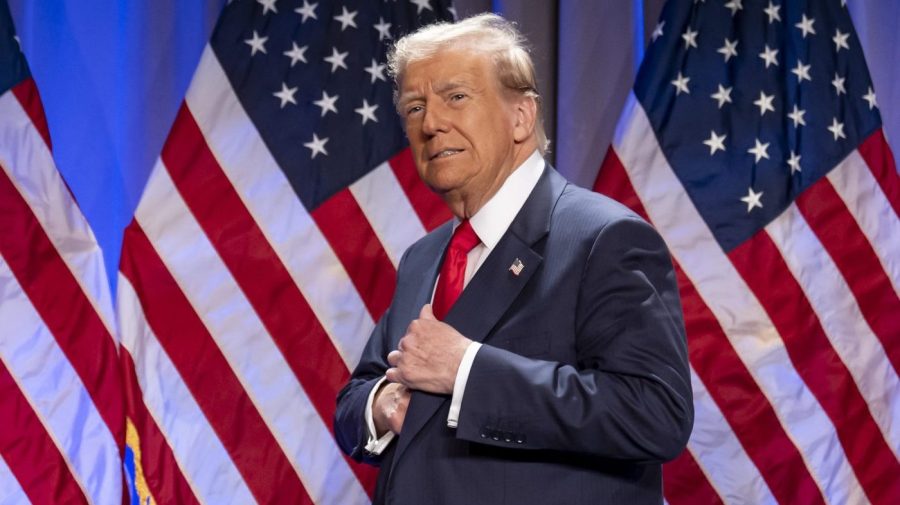
President Trump recently said that he will “100 percent” secure the release of conscience rights prisoner in Hong Kong, Jimmy Lai.
“100 percent, I’ll get him out. He’ll be easy to get out,” he said. “But we don’t have people that even talk about it.”
He’s right.
The Biden administration has been basically silent on Lai’s case and many others like it, which is emblematic of a broader retreat from moral leadership in foreign policy.
The Trump administration can and should change that. Supporting prisoners of conscience is both a moral imperative and a strategic advantage. It requires minimal diplomatic effort and yields substantial national security benefits.
Lai, a self-made billionaire and former newspaper publisher, has languished in a maximum-security Chinese prison in solitary confinement for four years, unseen until his trial, which is currently going on. His alleged crime is conspiring with foreign agents to undermine the Chinese Communist Party. His real “crime” is one as old as totalitarianism itself: refusing to become a mouthpiece for the regime.
Lai’s courage reminds me of Armando Valladares, a Cuban dissident I had the privilege of working alongside for many years.
Valladares endured 23 years in Castro’s gulags, for refusing to surrender his conscience to a three-word sign: “I’m with Fidel.” Eight of those years, Valladares spent naked, in solitary confinement. Yet, like Lai, he drew unshakable strength from his faith: Valladares wrote poetry from his cell until deprived of his pen. Lai sketched images of Christ on the cross until authorities confiscated his pad. These quiet acts of defiance underscore a truth that terrifies dictators: deeply held beliefs, like the proverbial rock in David’s sling, possess the power to topple even the mightiest of oppressors.
Standing with dissidents like Lai offers an incoming Trump administration the opportunity to strike a strategic blow against an authoritarian regime. Would securing Lai’s release topple the Chinese Communist Party? No. Would it weaken its might before the world? Absolutely.
At the same time, it would expose the regime’s fragility, remind the world that America stands with those who resist oppression, and serve as a decisive act of moral leadership that could forestall greater conflicts.
Yet securing Lai’s release and advancing U.S. interests also requires a revitalized commitment to conscience rights and religious liberty overseas. The Biden administration failed to install diplomats in almost 20 percent of embassies, many in strategically vital regions, creating a vacuum that continues to critically jeopardize our national security. Trump must act urgently to ensure that embassies are fully staffed with principled, capable diplomats who can champion American principles and support conscience rights.
All these positions are not symbolic; they are instrumental in strategically advancing security interests. The U.S., by championing conscience rights abroad, strengthens resistance to oppression and exposes the fragility of authoritarian regimes.
Marco Rubio, a potential secretary of State, understands this dynamic. A man of profound religious conviction and Cuban heritage, Rubio knows that Castro’s decision to cancel Christmasfor three decades wasn’t about Santa Claus. Dictators stamp out religion wherever they can find it because nothing weakens the despotic flex like the belief that our rights precede the Almighty State, and that they aren’t the Almighty State’s to give and take. The belief that our rights emanate from Almighty God, whatever name you give him, has the power of the rock in David’s sling — capable of felling even the most towering tyrants.
By prioritizing Lai’s release on Day 1, Trump and Rubio could signal a decisive shift in our foreign policy: a bold reaffirmation of America’s role as the unwavering defender of liberty and the champion of those who dare defy oppression. Such an act would strike a decisive blow against authoritarianism and yield a strategic gain for our national security, proving that the power of despots is neither absolute nor inevitable when met with courage, conviction and the unrelenting force of freedom.
Kristina Arriaga was a commissioner on the United States Commission on International Religious Freedom from 2016-2019. She is currently the CEO of Intrinsic Communications.












